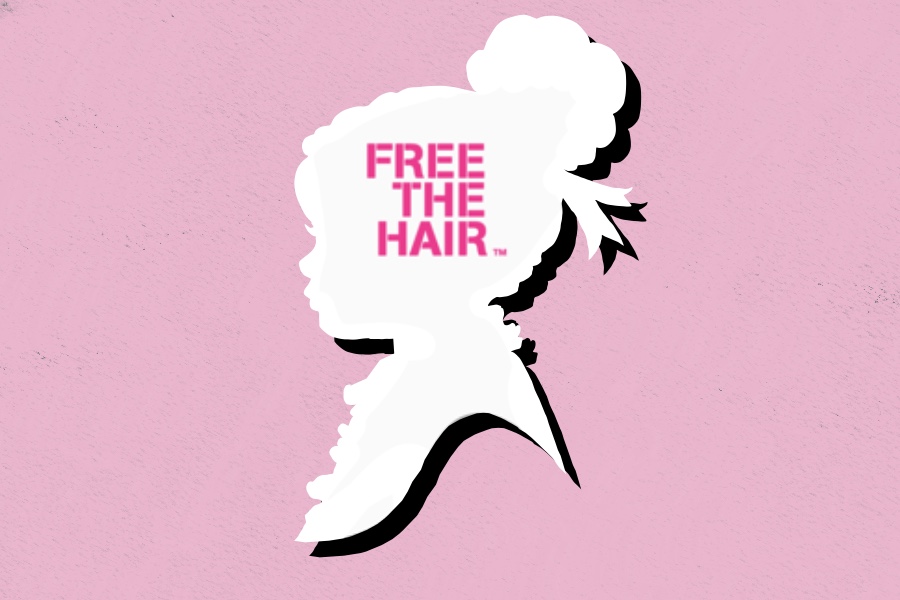CROWN Act goes into effect to protect against hair discrimination in Illinois
Daily file illustration by Olivia Abeyta
Illinois’ CROWN Act went into effect Jan. 1. One Evanston community member said it’s a good start toward helping people of color embrace their hairstyles and identities.
February 9, 2023
The Illinois Create a Respectful and Open Workplace for Natural Hair Act went into effect Jan. 1, protecting people of color from workplace and school discrimination on the basis of hairstyle and texture. Gov. J.B. Pritzker signed the act into law on June 29.
Historically, hairstyles like dreadlocks and braids worn traditionally by the Black community have led to discrimination in the workforce and schools, according to a press release from the governor’s office.
Black women are 80% more likely to change their natural hair to conform to the hairstyle standard at their profession or job, according to the Illinois Department of Human Rights website.
“(Hair discrimination) is a particular manifestation of discrimination that targets Black girls in unique ways, particularly in a context where women and beauty standards of representation are so powerful and pervasive,” said psychology Prof. Onnie Rogers, who co-authored “They’re Always Gonna Notice My Natural Hair: Identity, Intersectionality and Resistance Among Black Girls.”
She said the act doesn’t have the power to change attitudes or behaviors, but it can hold people accountable for their discrimination against the celebration of Black hair.
In 2021, Pritzker passed the Jett Hawkins Act, which prohibits hairstyle discrimination in Illinois public schools. The CROWN Act extends the protection of hairstyles in employment, housing and financial settings.
Vera Tartari, who owns a hair salon in Evanston and immigrated to the United States nearly 25 years ago from Albania, said the CROWN Act represents the freedom to express beauty.
“You have your hair, the beauty,” Tartari said. “You go with someone and you have your hair done and look like a 100 million, right?”
Nineteen other states have passed variations of the CROWN Act.
The U.S. House of Representatives passed a similar bill last March, though it has not passed the Senate.
Eye See Beauty owner Tanicca Abel said hair discrimination shouldn’t even be a topic of conversation in 2023 but that the CROWN Act is a good start to addressing it.
“It’s kind of crazy that we have to pass the act for someone to be okay embracing who they are as individuals,” Abel said.
Email: [email protected]
Twitter:@maria105jose
Related Stories:
— Dr. Wendy Greene discusses the intersection between natural hair, civil rights
— Illinois passes bill prohibiting hair discrimination in school
— NU senior launches start-up to promote Black women’s self-love through hair care


